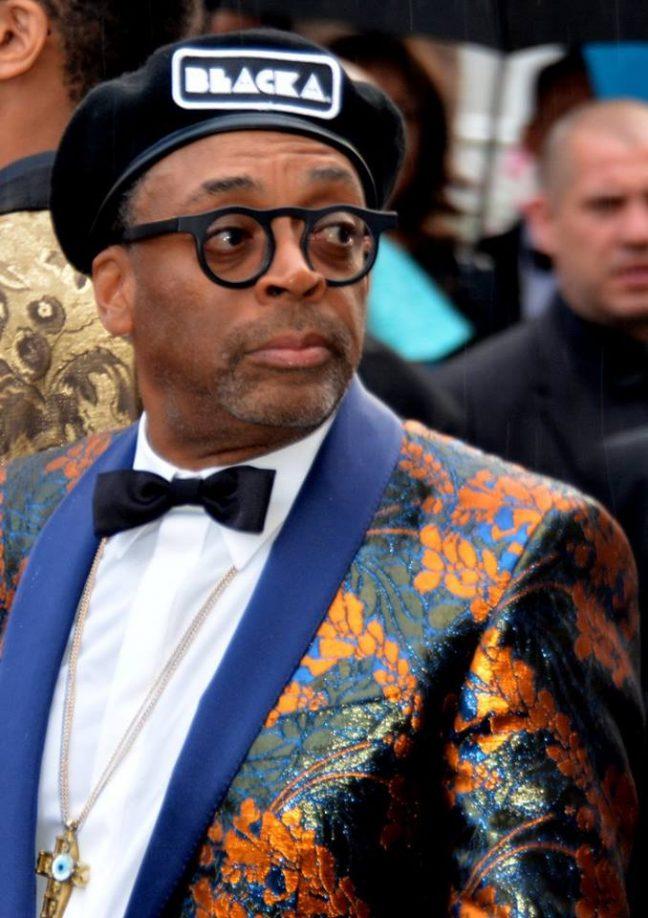Nov. 2, veteran police officer and author Ron Stallworth, whose early life was the subject of Spike Lee’s 2018 movie “BlacKkKlansman,” spoke virtually to a group of University of Wisconsin students about his detective work and undercover infiltration of the Ku Klux Klan in the 1970s.
The talk, which was preceded by a public showing of the film “BlacKkKlansman” in Union South’s Marquee Theater, was a part of the Wisconsin Union Directorate’s Distinguished Lecture Series, in which high-achieving individuals shed light on their life experiences and provide advice to the next generation.
Growing up in El Paso, Texas, Stallworth emphasized how the powerful women in his life instilled strong morals within him — most notably, his mother.
This rule-following attitude, along with the desire to be able to provide for himself, led him to join the Colorado Springs police training program in his early 20s. Stallworth spoke about the racial discrimination he faced during his early years in the police force, retelling an experience working in archives where a white cop asked him to pull up some information of a “toad,” a derogatory term for Black people.
Why Madison is one of the top cycling cities in the United States
“I told him, ‘I don’t have any reports on “toads” but I have reports on people,’” Stallworth said.
Through subtle confrontations like these and a devotion towards serving justice, Stallworth gained the respect of his peers and worked to debase racial bias in his workplace.
“In my 32-year career, I never played the race card,” Stallworth said. “I wanted people to see me as not a Black man, but as an officer.”
After a couple of years in the force, Stallworth became the first Black detective in the history of the Colorado Springs Police Department. This is where he had the idea to go after a growing Ku Klux Klan chapter in Colorado Springs.
Stallworth actively pretended to be a white supremacist, talking over the phone with KKK members about weekly meetings and cross burnings. To infiltrate in person events, his white colleague Flip Zimmerman posed as Ron.
Though Ron was the one behind the scenes, he talked about how he still felt he was putting his life in jeopardy every day.
“Every time I talked with David Duke or any Klansman, I was operating in an undercover capacity,” Stallworth said. “I was pretending to be someone that I was not, and I had to be cautious about what I was doing.”
Through their infiltration work, the duo was able to prevent several cross burnings and helped stun any further growth to the harmful group. As a Black man, the motivation was clear for Stallworth.
“I wanted to put a stop to it,” Stallworth said.
Stallworth later penned these experiences in his memoir “Black Klansman,” which director Spike Lee adapted into a film in 2018. The film, starring John David Washington as Stallworth, was nominated for four Golden Globes, three Screen Actor’s Guilds and six Academy Awards including Best Picture. Moreover, it won the Oscar for Best Adapted Screenplay.
Throughout the lecture, Stallworth praised Director Spike Lee for his work in bringing his life experiences to light, but he did acknowledge the liberties Spike took to the story to “Hollywood-ize” the film. In addition, Lee related Stallworth’s experience in the 1970s to the discrimination still faced by the African American community today, creating a political undertone to the film that transcends the movie screen.
When asked about how he felt losing in the Best Picture category to Green Book, Stallworth joked, “The Academy made a big mistake.”
Building off the success of his first, Stallworth is busy finishing his second memoir, “Black Klansman to Hip Hop Cop,” which follows the remainder of his illustrious career in law enforcement. The book is set to hit shelves in 2023.














